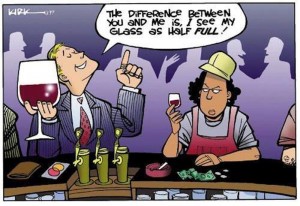Super Sad True Love Story’s most prevalent theme of dystopia revolves around the lack of privacy that comes along with society’s rare manner of using technology to communicate. On page 141, Lenny’s mother mentions to Lenny that Ms. Vida, his neighbor, heard him appear on the stream “101 People We Need to Feel Sorry for.” Lenny, of course, is embarrassed and had previously asked his parents not to look or listen to streams or data about him. The availability and constant broadcasting character’s every day lives is what I consider disturbing and what characterizes the novels society as dystopic. There is no sense of privacy what so ever.
The image I chose is a person checking their Facebook. This represents the scene on page 141 because people are checking technology to gain insight on what is happening with other peoples lives. The only difference between Facebook and SSTLS’s streams and data is that posting is optional. In the novel, there is pretty much nothing you can do about having your life and opinions constantly broadcasted, invading the privacy of all individuals.









